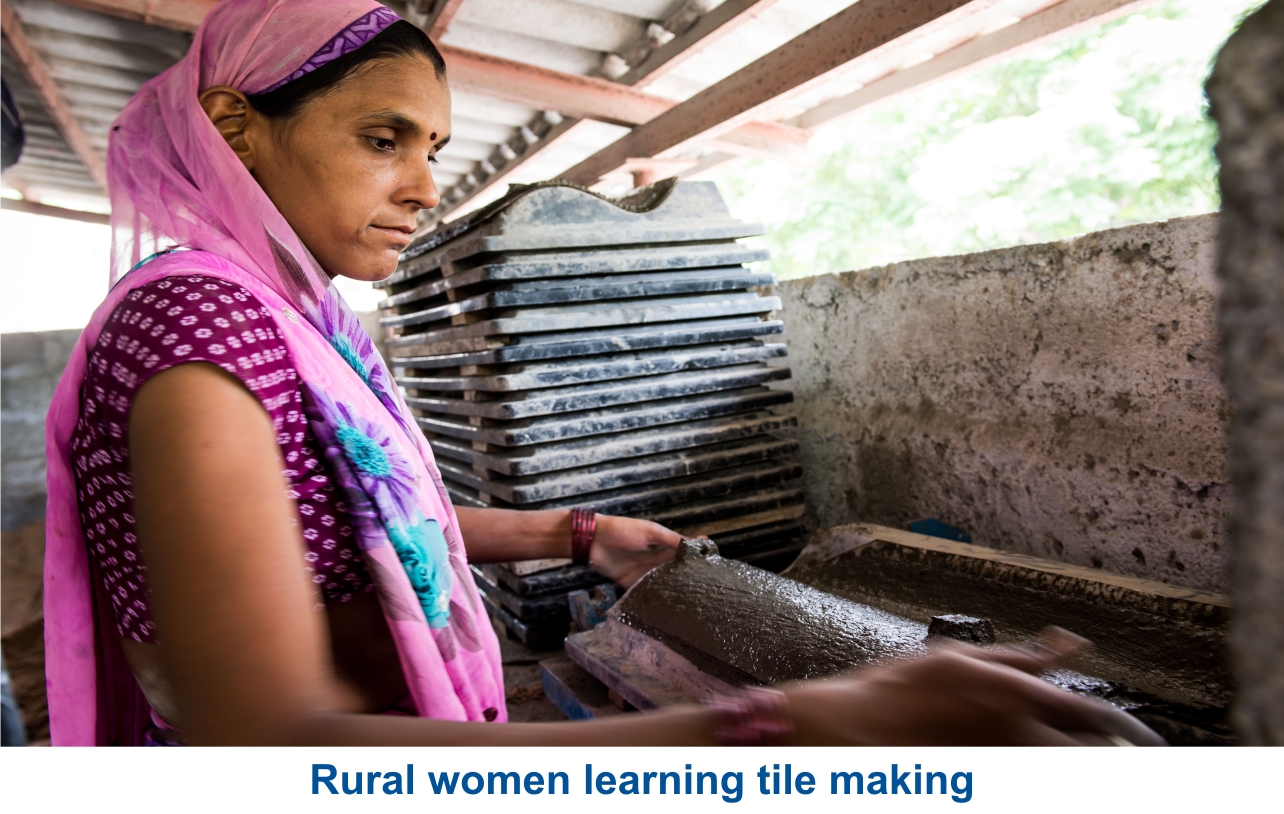|
CSR Policy in India- An
Enabler for Capacity Building
Skilling India: A National Priority Although India’s demographic dividend is usually lauded as one of its strengths, this has to be understood with caution. Unless skilled and provided with employment opportunities, the huge demographic dividend that aims to propel India onto the world stage might end up being a liability rather than an asset. To bridge the dichotomy between a demographic surplus and the lack of employable youth, the central and state governments have made skilling a national priority. Skills and knowledge are the driving forces of economic growth and social development for any country. The first attempt to promote skill development in the country was made with the National Policy on Skill Development in 2009. Consequently, over the last five years, India has made some progress towards developing the assets to drive skill training at scale. The National Skill Development Corporation (NSDC) was established in 2010 to promote public-private partnerships through innovative funding models. Aiding the NSDC in its objective to make India the skill capital of the world are its partners – the Sector Skill Councils, Training Centres, Industrial Training Institutes (ITI), and Polytechnics. Sector Skills Councils (SSCs) have facilitated the much-needed participation and ownership of the industry to ensure need based training programmes. In 2013, the National Skills Development Agency was set up to work with the state governments in synergising skilling efforts with the centre’s policy. The agency came up with the National Skills Qualification Framework, which seeks to align skilling and education outcomes with competency levels. In 2014, the central government made a renewed effort at skill development calling it a strategic priority for the country and a key enabler for the ‘Make in India’ anthem. The government set up the country’s first Ministry of Skill Development and Entrepreneurship to create an enabling ecosystem to impart employable skills to its growing workforce over the next few decades and streamline investments in the sector. In 2015, the Government of India unveiled the National Policy for Skill Development and Entrepreneurship. The policy seeks to create a demand for skilling across the country, correct and align skilling with required competencies, certify and assess in alignment with global and national standards and catalyse an ecosystem wherein productive and innovative entrepreneurship germinates, sustains and grows. The main goal behind all these efforts is to create opportunities, space and scope for the development of the talents of the Indian youth and to develop more of those sectors which have already been put under skill development for the last so many years and also to identify new sectors for skill development. The new ‘Skill India’ programme aims at providing training and skill development to 500 million youth of our country by 2020, covering each and every village. Various schemes are also proposed to achieve this objective.
Role of Corporates
Despite initiatives like Skill India and Make in India by the government, there still exists a huge mismatch of supply and demand, with students claiming lack of opportunities and organisations claiming lack of skilled talent. As a leading stakeholder in the skills ecosystem, Indian corporates play a significant role in the context of skill development by: providing an enabling environment for hands-on skill training to the workforce. defining the demand and setting the hiring benchmarks and policies. providing relevant technical expertise to build capacities and support scale-up of the skill development ecosystem in the country Private sector has the necessary resources and expertise in various domains that can translate into various skilling initiatives. However, the private sector needs to have a deeper penetration with formal colleges and government initiatives in order to create a better impact with a long term solution. Pradhan Mantri Kaushalya Vikas Yojana and Deen Dayal Upadhyay Grameen Kaushalya Yojana have been crucial initiatives to encourage the youth to acquire skills. While the initiatives are progressive, they need to have a deeper alignment with the recruiting industry by design. The courses must not only be ending in certificates but should translate into employment and hence public private partnership have an important role to play. With the Corporate Social Responsibility mandate on profit-making companies, it makes imminent sense for companies to engage in efforts that effectively skill the youth as they help build the overall capacity of the industry, which is currently facing a demand-supply crisis. The private sector by deploying its CSR capital on skill development projects, also stands to benefit enormously from the availability of a skilled and disciplined workforce. Such a workforce can easily translate into better levels of customer service, reduced absenteeism and employee turnover, increased productivity and efficiency, along with reduced recruitment costs.
Corporate Social Responsibility and Skill Development In a landmark move, the 2013 Companies Act mandated all companies with a minimum net worth of INR 500 crores, a turnover of INR 1,000 crores, and a net profit of at least INR 5 crores, to spend at least 2% of their profits on CSR. This has shifted the conversation from philanthropy to a deeper and value-based engagement with society. Progressive companies are looking for ways to leverage their core strengths, such as technical expertise, process rigour and widespread presence across the country to create sustainable social impact. It is such collaborative thinking and action that is required on the part of the government and the private sector which will not only propel growth but ensure that the growth achieved is sustainable, inclusive and equitable. There has hence been a strong focus in skill development since it offers companies a chance to create sustainable impact while leveraging their core technical expertise. Investing in skill development to enable access to skilled resources to the industry also provides long-term business value to the corporations and the entire industry ecosystem. Companies are increasingly creating structured skill development initiatives in their specific sectors while leveraging the ecosystem support that is enabled by NSDC. Some key opportunities for CSR in skill development are: • Capacity building of Institutional Training Institutes (ITI’s) • Enabling on the job training • Vocationalisation of education • Promoting entrepreneurship • Upskilling the existing workforce • Skilling and employment of people with disabilities • Combating the skilling and hiring gap An example of such practices includes Tata Motors’ partnership with 135 government-run Industrial Training Institutes across the country - 31 under the public-private partnership model involved in training nearly 10,000 youth every year in areas of vehicle repair and maintenance. In such cases, better management, involvement of domain experts and technological transfer enables projects to be scalable without which it isn’t possible to have the wide impact that is needed. Similar projects include those in the IT-BPM sector in providing language and computer literacy skills, large scale skill development projects involving collaboration between the Ministry of Labour, NSDC and private and public mining corporations and some well-run Employment Exchange Programmes in Gujarat providing training not only in basic soft skills and computer literacy but also collaborating closely with industry to provide high end facilities for trainees. ■
Arpita Goyal |


